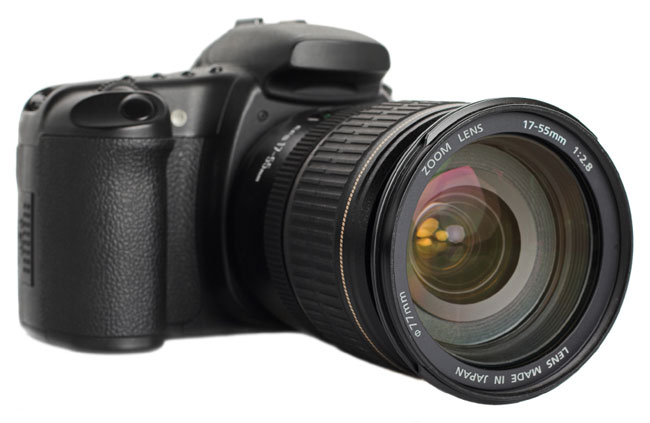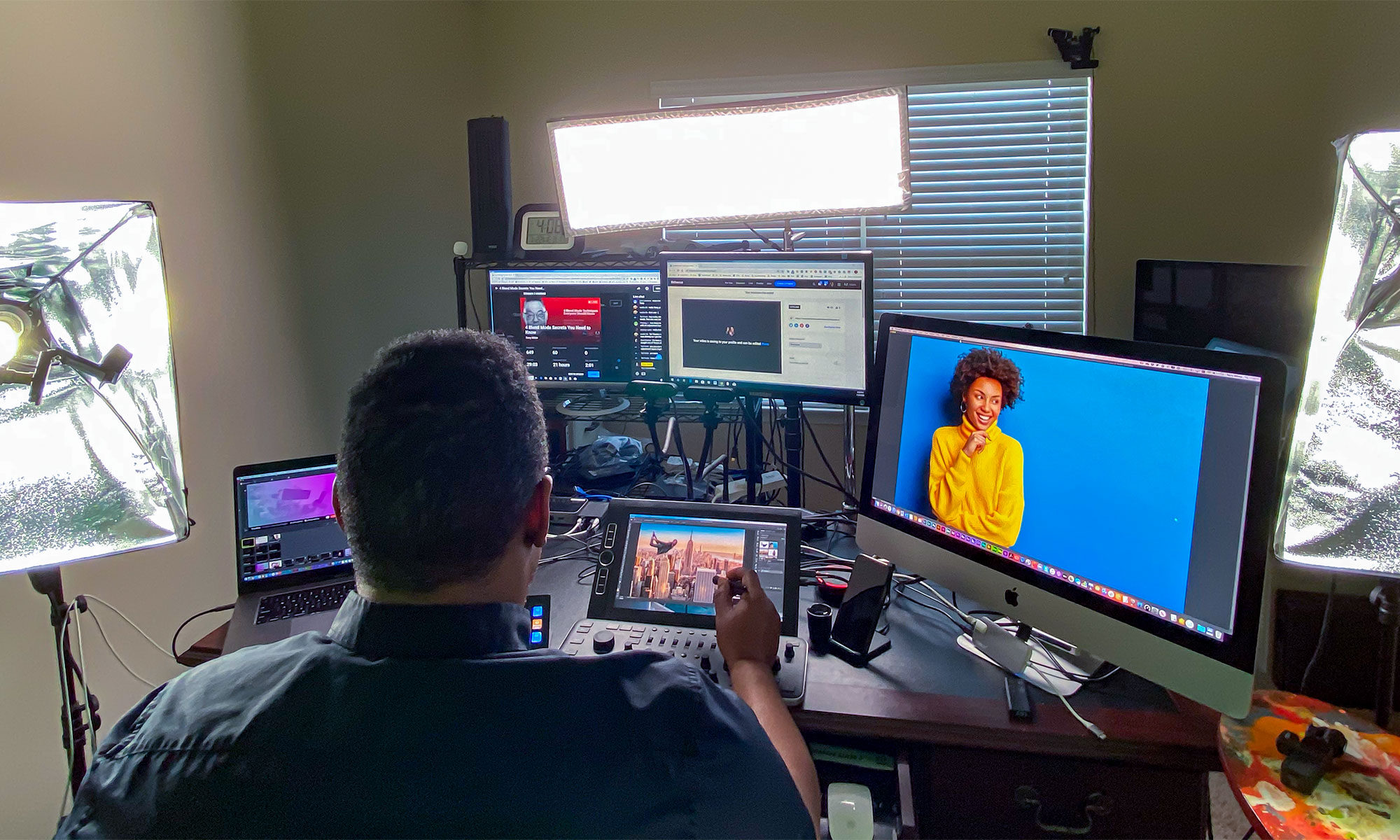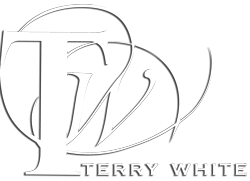
Nothing sparks passion and debate like a good ole’ fashion copyright discussion. I’m sure this question has been asked before and probably answered, but I thought I’d ask it here and see what my readers feel…
If someone picks up your camera and snaps a photo, who owns it?
Yes technically it’s your camera and you physically have possession of the shot, but whose copyright is it? Does it matter if you gave permission to use your camera or not?
Sound off in the comment section…


Here’s a strange answer that i’ve heard about 3 months ago at our monthly Camera club meetings.If I told you to use your Nikon D4 camera & take a picture of a bird or anything, then that makes me the copyright holder because I am the Director of photography-:) So Essentially anyone who directs whats to be photographed holds the copyright since they are the ones who came with the idea or told you what to photograph.Therefore it doesn’t matter who’s behind the camera-:( Very Strange I know!
Interesting ( and yes, very strange!) point of view here. But when you mentioned “Director of Photography”, that made me think of movies. Move the whole situation to a movie set, the director positions the camera, lights the place, decides where it goes and what will be recorded… Those images copyrights certainly don’t belong to the camera man… or do they?
Ana, thats correct.I was told that the same “Director of Photography” premise used in movies applies in Still Photography as well.Copyright law is so complicated and its curcumstantial.(Personally ,If i take the picture..then its mine.End of Story-:)
There was actually a real case of a child snapping some shots with a photographer’s (Mirjam Letsch) camera. I’ve written a short blog post about it here:
http://blog.greywolf.ro/personal/cine-detine-drepturile-de-autor/?lang=en
It really is an interesting discussion, and also the pictures are quite interesting. Sorry the comments are in Romanian, but the post itself is in English.
Copyright is purely a matter of law, not popular opinion.
As far as I am aware, the copyright is the intellectual property of the photographer unless he is an employee under a Work for Hire or other contractual agreement with an employer, client or customer which stipulates otherwise … I don’t think ownership of the camera is a factor … Nor under U.S. law, is the Director of Photography the copyright holder … Because you can’t copyright an idea or directive … Unless of course it is otherwise contractually agreed upon in advance by all parties concerned …
There is plenty more info on what copyright is … And is not …. Can be found on the US government site …
http://www.copyright.gov/
I’m not a lawyer, but from the info I’ve read so far it depends on
1) Who registered the copyright of the photo?
2) Was your camera the subject of the photo?
3) Did they get permission to “pick up” your property?
4) How good is your lawyer.
5) What are you expecting to get in return for the photo?
Your right Terry. This can be a lively discussion. Was it a misdemeanor of theft or a federal case of copyright.
legally the person who presses the shutter is the owner of the copyright of the photograph. good luck proving that in court if it actually came up.
from http://www.copyright.gov/circs/circ01.pdf:
“The copyright in the work of authorship
immediately becomes the property of the author who cre
ated the work. Only the author or those deriving their rights
through the author can rightfully claim copyright.”
If someone takes a photo with my camera, as far as I’m concerned it’s definitely their photo.
Assuming that the image is an artistic expression, the snapper. If an painter uses a canvas you had, is the painting yours? Is not a camera a tool like a paint brush?
If you act as a director and say where, what and how to shoot, you are helping create the photo.
Unless stipulated in a contract, I would think copyright would belong to both.
I think Butch has the answer. My understanding is the photographer owns the rights to the work unless he/she is an employee or is under a work for hire with a contract stipulating ownership of rights.
If I rent a camera from a local camera shop, would the shop own the images I took? Clearly not.
Sounds to me like the copyright owner in this case, is whoever the first person to go to http://www.copyright.gov and register is…that’s a tough one
Nobody touches my cameras!!!!
Richard
Although I’m a lawyer, my specialty isn’t copyright law, but I think it’s clear that it’s NOT as simple as who presses the shutter. I think the amount of direction given probably goes a long way to determining who really took the picture.
Some examples from real life:
– I was at a bullfight in Madrid. While I stepped out to use the bathroom, the bull knocked over one of the horses that was involved in the fight – a pretty surprising event. My friend picked up my camera and took some shots of the horse on the ground. I wouldn’t feel comfortable presenting that picture along with the other pictures of the bullfight that I did take, copyright or not. Even if I probably would have taken the exact same picture, the fact is, I didn’t.
– Another friend and I are climbing the Great Wall. I hand him my camera and tell him to take a shot of me from a few steps above me. I have just taken a similar photo of him that I think will come out well. While I give him the general direction, it’s up to my friend to actually frame the shot. The pictures don’t look that great until I punch them up considerably in Lightroom. This one is very tricky for me. My friend framed the shot and pushed the trigger. I told him to do so and had just taken a similar shot myself. I did the post-processing that resulted in the final image. If anything, I think this is a joint work between two people.
– Same friend as the Great Wall, but now we’re in a botanic garden in Medellin. I’ve set up my gorillapod for a self portrait, but I decide I want to do it in HDR. My camera doesn’t auto-bracket on self timer or remote, so I tell my friend to just hold down the shutter while I pose as planned. In my view that’s definitely my picture. I envisioned it and composed it. My friend is just a very hairy remote control.
Analogy time…
If you had your paints out, and someone came along, and painted a picture, using your paints, who would own it? Seems that the artist, not the paints owner. Same with a photograph.
As others have said… good luck proving the non-owner of the camera, took the shot, though.
What happens if the camera owner erases the “foreign” picture from his camera’s memory card?
It’s so easy, even a monkey can do it
http://www.petapixel.com/2011/07/05/monkey-hijacks-photographers-camera-and-shoots-self-portraits/
Terry,
Rather than solicit “lively” opinions from your readers as to what constitutes image copyright, would it not make more sense to bring in a legal expert on the subject like Jack Reznicki? I think it only muddies the already murky waters by letting loose “random” opinions on purely legal matters.
I agree with what Butch said.
Whoever took the picture owns the copyright ( unless there is a legally binding contract that states otherwise specifically ).
Let’s ask the question in a different way. If someone stole your ball pen and wrote a literary masterpiece with it, who owns the copyright?
Just the fact that a camera is lot more expensive, doesn’t change the basic tenets of the copyright law. The person who composes the picture and presses the shutter owns the copyright.
I’m in the UK and copyright law here differs but the way I was taught is that you have copyright of any photograph you take unless another legal president removes it. For example your comtract of employment will often assign copyright to your employer if you take photographs on the job. Purchasing a ticket for an event such as a concert may assign copyright of your photograph to the event organiser as part of the terms and conditions for purchasing the ticket. Over here copyright does not have to be claimed or registered. We also have a series of moral rights, which have to be claimed. This is done by labelling your work ‘moral right asserted’. One of the most usefull moral right is the right to be associated with your work, so if you send you work into a newspaper and claim your moral rights they have to credit you as being the author of the work instead of tagging it as being “contributed”.
I’m not a lawer though sometimes the “law” appears to confuse the issues more than provide clarity. 1. The photographer must have permission of the camera owner to use her/his equipment. 2. Then and only then can he/she claim copyright of the product created by her/him during their permitted use only.
I have been involved in several major and minor legal tangles with infringers of my copyright. Whoever presses the shutter becomes, legally, the owner of the copyright to that image absent any countervailing contractual agreement(s). Additional layers of protection result by registering the copyright with the Library of Congress. Jay Maisel is the go-to guy for complete information as is Joel Hecker, my life long friend and intellectual property attorney.
The person taking the photo owns the images, regardless of whose camera it is. An analogy could be loaning Hemingway your typewriter to type a novel. As far as the camera director goes, that depends whether or not what you are creating for the camera director is “work for hire”. Someone offering direction or advice does not own your work / image. I think a lot of people read too much into this situation and make it more complicated than it really is. Great topic and great blog … I really enjoy the information that you offer on your site.
Absent significant direction from another person or a work made for hire agreement then the person who presses the shutter is the owner of the copyright. Of course this can be changed by written agreement after the image is made.
In this case I really don’t care about the copyright law. I would give the image to the person that took it. It is just the nice thing to do.
Robert
The Golden Rule, unfortunately, has little representation in the statute books. Perhaps those retro Catholics, Justices Scalia, Thomas, Roberts, Alito,and Kennedy will bring its sensibilities to their decisions regarding intellectual property. Holding breath…
My thinking is along the lines of Kwesi8. IF the person pressing the shutter has permission to use the camera then copyright of the images belong to that person. If on the other hand the person does not have permission to use the camera then they may not legally claim copyright. They may have snapped the picture but the electrons on that memory card belong to the owner of the camera. An example would be if someone, without your permission, painted a mural on the side of your house. They cannot claim copyright because they don’t own the medium on which the work is created. The homeowner does. Just my two cents and no I am not a lawyer. This is just my personal reasoning on the matter. Interesting discussion though.
I don’t think Terry is doing anyone any favours letting you all rabbit on like this (must be a slow week for fresh content). So much misinformation.
A voice of authority needs to step in here and set the record straight.
A voice of authority is always welcome. Wondering if you’re one since you are pointing out “misinformation” here? What’s the correct information?
Seeing as there are conflicting opinions both claiming to be correct, some — or maybe even all — of the opinions expressed here must be “misinformed.” As I pointed out three days ago, an expert like intellectual property attorney, Ed Greenberg (whom I’m sure you are familiar with, Terry) could have given us all the facts from the start. Personal opinions have little value in legal matters.
P.S. In my Jun 20th post, I mistakenly suggested Jack Reznicki as a legal expert. He is a colleague of Greenberg’s and a photo rights advocate, but to the best of my knowledge, not an attorney. Scott Kelby ran a two part show with these two experts on this very subject: http://scottkelby.com/2008/the-real-scoop-on-copyright-model-releases-and-shooting-in-public/
I’m not suggesting that anyone’s “opinion” be taken as the law. The point of the post was to have the “discussion” and for people to give it some thought. If you need/want legal advice it’s best to go to an attorney with your particular case.
From time to time I do have “thoughts” and wonder (sometimes) what others think? If I really had this particular issue then I would have sought out a copyright attorney and asked. No public opinion doesn’t matter in a legal case, but that doesn’t mean that it can’t be discussed. #freedomofspeech
If you or others feel like its a waste of time talking about it, then it’s pretty easy NOT to participate in the discussion.
Implied by comments of Toby Fairchild and Kwesi8, if you own the creation you must also have the right to destroy it. The graffiti “artist” does not have the right to tear down the wall of my house. Nor does the person who uses my camera have the right to destroy your memory card or film. Those things are the property of the owner to grant to that self-styled creator. I would graciously say “thank you” acknowledging the gift and may even offer them a copy to use as they wish if I choose to print it.
As to copyright, wouldn’t that only apply if I chose to to use it in a public rather than private fashion. Wouldn’t the self-styled creator have to negotiate with me, the physical possessor, to obtain access to it? Copyrights would be negotiated at that point. N’est-ce pas?
Interesting and highly litigious area of photography. As far as the Director of Photography in Hollywood goes, all personnel are under contract and hire so the copyright owner is the producer or studio [whoever is paying for hire] of the cinematography in my opinion. Credit is given at the end of the film to the personnel involved but that does not grant copyright. Thus, from a logical approach, a director of photography is an artist but paid, under contract and without copyright ownership unless he/she is also the person producing the film.
I agree that the shooter is the copyright owner but there should also be room for argument that the shot could not have taken place without the equipment used and therefore subject to compensation by the copyright owner if copyright sales exist. This would seem the common sense approach anyway. Naturally, common sense and the law do not always see eye to eye.
Once again, I’m a day late and a dollar short. I’m attending classes at the local public television station to become a certified producer. I use my ideas, my treatments, my location, their lights, their cameras, their software and their hardware to shoot, edit and produce my project. According to them, at the end of the day, or shoot, it’s all my content per their Policies and Procedures.
“Produced through the facilities of Blah Blah Community Television. Content
of this program is the sole responsibility of the Producer and does not reflect the
views of Blah, Blah and its Cable Partners.”
3. OWNERSHIP: Producers retain all copyrights to the program content.
Therefore, if someone picked up my camera and took a picture with it, they own it. But that would never happen as my cameras are never in a position for someone else to use them:)
Mu 2 cents…
But in the situation of the community television producers, Everyone working on the production is under “work for hire” employment, So this is a very different situation than an independent contractor.
At least that is the conclusion I’ve been coming to (and I could be 100% wrong).
Let’s remove this from the photo area for a moment so we can have some perspective that might lead to an example that reflects reality:
Assume that one is writing a book; the book is, perhaps, one that is written about you; the author hands you the pen, and has you write out the words that he or she dictates — words about you, even; after you have finished writing those words, who owns the Copyright?
Of course, the answer is the author.
If a photographer hands their camera to someone, directs what and how the photo is to be taken, and, in other words, creates a situation that did not exist before the direction of how the photo was to be taken occurred, then, regardless of the operator of the camera, the person whose creative activities caused the photo to be taken in just a particular manner is the owner of the Copyright.